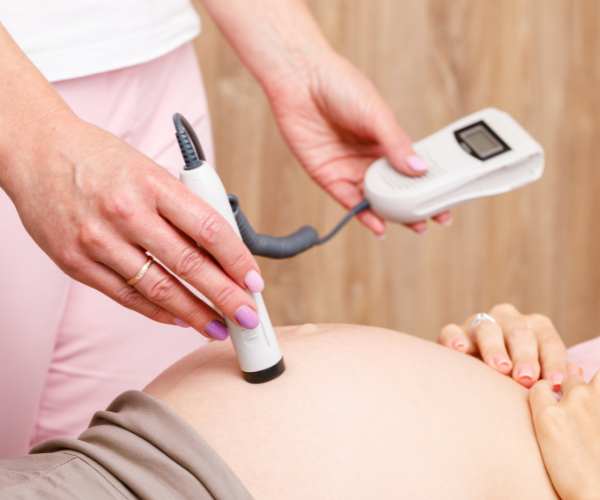The Importance of Community in Pregnancy
What We Are Going to Learn:
- Importance of forming a society in pregnancy: The absence of such strong measures aggravates the stresses, among providing aid in services and otherwise.
- Key support types that each pregnant woman ought to have: Fulfilling responsibilities of family and friends and even healthcare providers and communities are crucial.
- How support systems deal with the issues and problems encountered in each stage of the pregnancy: There is no remaining stage from birth until hereof which is devoid of aids.
- Importance of the following: mental resilience, emotional well being and spiritual well being: Woman is proportionally throughout the journey affected , so it’s the support systems that enhance all these areas.
- Methods for the inclusion of family, friends and health care providers in your journey: There are many ways to create supportive relations that can improve and facilitate the pregnancy exposure.

Point 1: Physical, emotional, and spiritual wholeness
The creation of social structures or groups for pregnant women has a major significance as it impacts their physical, emotional, and spiritual well-being positively. Akin to physical aspects of pregnancy, pregnancy in itself takes a toll on a woman’s emotional and spiritual aspects. In pregnancy, a season of upheaval and uncertainty, belonging to a community allows someone to turn what could be loneliness into empowerment and understanding.
Physical Well-Being
A woman’s physical health is vulnerable during the pregnancy period, but assistance from family or friends can make a world of a difference. Many studies explain that women in expectancy who have their relatives, close friends, or a healthcare practitioner engaged in their life are more inclined towards self-care and, give importance to their doctor visits and prescribed medications. According to analyses published in the Journal of Obstetric, Gynecologic, and Neonatal Nursing women who had encouraging social interactions regularly, had 30% more chances of having a normal pregnancy without hypertension or preterm labor emplacing that constant social network matters. This difference is especially pronounced among women who believe they have one or more reliable contacts who can help with practical, emotional, or occasionally physical matters.
Since pregnant women experience changes in body and hormones, their emotional state will also change resulting in positive and negative feelings during the period. It is during these periods that an emotional support system is important since it can assist in the discouragement of negative emotions such as anxiety and depression. Women with emotional support tend to have an enhanced potential of up to 40 % during the pregnancy as observed by a research conducted by Harvard School of Public Health. Talking to colleagues and family members eases the emotional burden as they ease a woman’s emotions and make her feel accepted and listened to.
Also known as motherhood, some women describe pregnancy as a point of self-realization and where reflection occurs. There are women who feel a certain joy and need to bond with like-minded people who understand pregnancy and appreciate the journey with them. If expecting women are provided with a highly supportive community, especially during pregnancy challenges, then it may boost a person’s sense of value and inner peace. Whether it is through attending church, mediation sessions, or even talking to a friend a woman can finally feel at peace.
Point 2: Ways to avoid distress during pregnancy naturally
As with any new life, their pregnancy isn’t all flowers and butterflies and comes with lots of questions, uncertainties, changes and stress. Stress may arise from worrying about the baby’s health or other challenges that may come with the new phase in life. Thankfully, such stress is alleviated by a network of a strong community who instills emotional strength and confidence in such a woman so that she can be open about her fears and seek solace.
A study carried out by Stanford Medicine discovered that stressful life situations during pregnancy can increase the risk of complications up to a staggering 35% such as preterm delivery or lower infant birth weight. The picture for women who are active in group settings with relatives, friends or community-based associations is, however, better, as their level of stress hormones significantly decreases. That is because when pregnant women are with people who are attentive to them, reassuring them, or providing them with similar experiences, they become calm, composed, and stress-free.
Sample Situation
Let us consider Sarah, an inexperienced mother who became filled with apprehension in the course of the second trimester of her second pregnancy. In one of the active phases of her pregnancy, Sarah decided to enroll at a local prenatal yoga class, which allowed her to meet other pregnant women who were ideally in the same stage as she was. As Sarah listened to these women talk about their struggles, she began to appreciate that she was not on her own. They provided her with a lot of humor and unfortunate moments, but great times, and thus helped Sarah cope with her stressful times. In the course of time, because of her network, Sarah became more confident, more prepared, and more stress-free regarding her pregnancy.
Point 3: Fostering More Improved Perspectives about Life and Self-Esteem
It is true that during pregnancy, a woman’s shape will undergo a myriad of changes, and while effective, these changes may be detrimental to self-worth and body image, which is nothing uncommon. These women can have a lower sense of self esteem if they do not have a positive support system, particularly in the area of how they should perceive their body. Women who nurture with those who appreciate the female form and the strength of motherhood can take changes to their figure as they will be viewed in a totally new light, as transformations rather than changes.
Increasing Self-confidence
Women who have well-established support networks often develop a greater sense of self-efficacy and pride in their vessel changes. The encouragement sounds from the community helps retain the strength and beauty in the person even in the awkward days. A study collected by the University of Michigan Research on body image during pregnancy, found that women who benefited from these support groups, had 25% more body satisfaction when compared to women who did not have help. Gentle communities through pregnancy help women accept and even appreciate the changes that pregnancy brings about.
Body Positivity in Community Support
A testimonial by Emily, ‘a mother’, states: “I was really struggling with my weight gain, but then I joined a mom-to-be group, and seeing all these amazing women feeling proud of their baby bumps made me start to feel that way, too.” Such examples like that of Emily’s seek to make the roots of the society able to start appreciating their bodies rather than constantly find flaws and disappointments. Such support and motivation make significant changes in the lives of women who are already undergoing a lot during pregnancy.
In short, a well-rounded support community enables pregnant women to meet practical needs, cope with stress in healthy ways, and see themselves in a good light, which is why it is important in every phase of pregnancy. Such networks are important so that pregnant women can access the necessary emotional, physical, and spiritual support and withstand any struggles and survive the journey with poise.
Important Components of a Pregnancy Support System
Family and Friends
Benefits:
For pregnant women, family and friends are the primary support system since they provide both encouragement and help. Even attending maternal checkups, running errands or just being there for them can go a long way in easing the stress that the mothers might feel during this stage. Studies show that women who are in close relationships that are supportive have a much greater level of satisfaction and have much less stress during their pregnancy period. For example, Schott et al. (2018) noted that pregnant women who had regular family or friends support managed to reduce their stress levels by 25% which is helpful to both the mother and baby.
Myth vs. Fact:
Many people seem to think that pregnancy is all about happiness and excitement. While there are moments of such joy, the process most often comes with various emotions, some of which can be tough. Most women do not have the same level of joy through the duration of the pregnancy, and there are good reasons for this – mood changes due to hormonal fluctuations are expected. Sometimes sadness, anxiety or irritability might occur in women and during these times family and friends should provide understanding and patience instead of the pressure of “looking at the bright side.” Such an understanding allows those around a woman to helplessly assist her rather than dismissing her emotions.
Healthcare providers
Benefits:
Women during pregnancy require the help of healthcare professionals such as, OB-GYNs, midwives, or mental specialists in who will help them with the psychological and emotional demands of the pregnancy. Implementing their knowledge into care helps lessen uncertainties, view points, and worries, providing a level of confidence with the practice. It has been suggested that women contact their health providers regularly to build their confidence on the relevant matter and the over preparedness for process. Around 85% of pregnant women have claimed in The Journal of Women’s Health that after consistently communicating with their healthcare teams, they feel more at peace and can absorb the information better. Therefore, having dependable medical advice helps lower anxiety and enables women to make the best decisions about their treatment.
Statistics:
According to the National Institute of Health, 78% of women pregnant for the first time had regular contact with healthcare providers during their pregnancy and reported experiencing lower levels of anxiety when thinking about labor and delivery. For women expecting their first child, a referral gives them great reassurance because it means they have someone to call whenever they have a tiny ache or a greater health concern.
Support groups and Online Communities
Why They Work:
Support groups and online communities foster a positive and safe environment for women talk about their pregnancy experiences with people who are experienced. Women now see and hear others at the same developing stage which helps them beat the feeling of isolation and build connections. Having such experiences, going through similar situations, and sharing practical insights brings not only the emotional comfort but the practical solutions which may not be available in a conventional setup.
Emotional Balance:
Pregnancy related support groups have enabled a number of women to attain emotional balance as they are able to talk about their fears and their joys without being judged. A study conducted by The Journal of Perinatal Education67% of women said support groups helped them cope with stress associated with pregnancy. Setting the stage for trust allows people to more easily interact with others. Because of this trust, it is easier to talk about similar experiences as conversation creates the atmosphere of helping and understanding which builds emotional strength.
Partners and spouses
Role:
A partner or spouse plays a crucial role in offering emotional support and companionship all through the pregnancy phase. Sickness is a major hurdle that a woman has to go through but with the right partner who stays with them through all the pre-natal and post-natal appointments, it is very easy to endure. They help ease her worries by having the right information about her situation and being supportive. As they share this bond, it helps them in being more in-tune as they step into parenthood together.
Storytelling:
Take Emma and Tom, for instance. They are one of the many couples who are expecting their first child. Tom made it a point to attend all of Emma’s doctor’s appointments and would also look up prenatal care articles to stay informed and help Emma feel that she had support. There are certain moments when Emma doubts the things she has been told but having Tom there to tell her that this is a process that they are doing together, and it is okay to have those doubts, is very reassuring. يAs they learned to listen to each other’s concerns and aspirations, they were able to face the complexities of pregnancy together. This clearly shows the kind of place a strong partner occupies in a person’s life.
Obstetrics in Pregnancy and the Intermediate Support Required
The First Trimester: Dealing with Physical Changes and Anxiety Efforts
Common Symptoms:
Expected physical symptoms like fatigue, nausea, vomiting, and hormonal changes are usually observed during the first trimester. These transitions together with the anticipation and stress of early pregnancy can be quite disconcerting. Nausea or morning sickness is reported in nearly about 80% of women, and around 60% of women report fatigue in the first few months.
Support Solutions:
At this stage, family comes in very useful in terms of running day-to-day errands and providing reassurance. Healthcare professionals are of great assistance in managing the issues, dealing with the concerns, and helping in overcoming expectations. Other women who have the same and sometimes even other severe symptoms seek other women and seem to have a better understanding of their situation. Wow now. Women who feel that they are in good hands during the first trimester are 20% more likely to rate their pregnancy experience overall positively.
Second Trimester: Transition in Moods and Self-Concept
Complexities:
The second trimester is viewed as a crucial moment intellectually and materially because alteration in body contours can distort self perception, among other factors: ‘A woman can be quite moody and self conscious during this stage.’ Approximately 50%, have trouble accepting their self image due to pregnancy alone at this stage – around the envelope in the hormones anxious spring.
Support Solutions:
There are also coping mechanisms such as counseling or therapy, which shudders the self-inflammation of one’s identity relating towards anxiety concerns in regards to one’s own image. Attending an appropriate remedial session on this value should help. Counselling didn’t necessarily target this sort of mental state. A nerve racking experience may occur when a large number of women try to grapple with these feelings simultaneously. Some opt seeing a therapist for these feeling violence and the emotional twist of it further inside the body’s framework.
Third Trimester: Act of Composure and Fearing the Presence of Childbirth
Physical and mental readiness to give birth:
Women become highly ready for childbirth with a combination of physical strains and fears with closeness to a due date. The complexity of being able to do it ‘the third trimester’ or somewhat correctly is easy to remember – it’s the long wound mentally self that performs its tow mentally over birth with activity orientated change.
Support Solutions:
Midwife and prenatal classes are helpful during this phase. Antenatal education classes with the partner normals women’s ideas and fears of delivery. Birth support groups may help in teaching breathing techniques and relaxation through mindfulness practices during the labor.
Table of contents:
1. Table of Pregnancy Support Needs by Stage.
2. How support systems foster mental resilience, emotional balance and spiritual harmony
3. Mental Resilience
4. Real Life Example.
1. Table of Pregnancy Support Needs by Stage
Trimester Physical Needs Emotional Needs Support Strategies
First Trimester Coping with fatigue, nausea, hormonal shifts Handling anxiety and adjusting to pregnancy Family support, health care reassurance, practical help.
Second Trimester Adapting to body changes Building self-image and dealing with mood swings. Counseling, support groups, through a therapist.
Third Trimester Physical preparation for labor and coping with fear. Child birth anxiety and self assurance. Midwife visits, prenatal classes that involve relaxation.
Support systems are the backbone of mental fortitude, emotional sensitivity and spiritual wellness
2. Mental resilience, why is it important to maintain a stable mental well being during pregnancy.
Pregnancy is an important stage in someone’s life that requires emotional strength as it has an impact on rhythms of tribal life such as labor and the recovery period. According to research by University of Pennsylvania, pregnant women who take the help of social support to lessen their anxiety are more likely to suffer from complications during labor. There is also research estimating women with social support are 35 percent less likely to experience postpartum depression.
3. Amanda is an example of a mother who was able to alleviate her anxiety by getting closer to her friends which allowed her to rest and prepare for the baby’s arrival. These examples highlight the importance of mental resilience while being pregnant.
Emotional Control
Understanding most women are able to fully appreciate the physical progression of pregnancy, This enhances the woman’s experience through better mental support as they are able to recover much quicker after having given birth. This balanced state assists women to approach pregnancy peacefully and content.
Social and Religious Bonding
That is why many women feel better to practice religious or mindful practices during the time of pregnancy. Joining a support group that shares similar beliefs can be beneficial for their spiritual growth by providing support as well as direction. This social attachment makes the individuals who seek for such an inner peace and tranquility stronger.
Frequently Asked Questions (FAQs)
How can I expand my support network while I’m pregnant?
It is really important to have support around you during the time of your pregnancy. Add Prenatal classes to the list of things to do. These are not only more of knowledge transfer, but also create a bond with other expectant families. Literature supports the fact that pregnant women who take prenatal classes will feel 30% more ready for birthing with the help of acquired knowledge plus mental peace presented in solution based strategies offered.
Within the context of pregnancy, online communities can serve as a source of stress relief. Through BabyCenter or What to Expect, for example, women are able to connect and exchange experiences, advice, or even complain about their day to day life. It has been shown in the Journal of Medical Internet Research that 70% of pregnant women reported a reduction in feeling alone after joining such groups. If looking for a personal connection, supportive therapy such as individual therapy, group therapy or prenatal therapy may assist in alleviating worries and shaping a positive attitude towards pregnancy and motherhood. Many hospitals also provide these services or can refer to them.
Why is community support needed from the perspective of a pregnant woman’s mental health?
Community support for a pregnant woman is essential because it reduces a lot of stress and increases a shared sense of belonging. As per the American Psychological Association, 64% of pregnant women who have adequate support tend to be less anxious and depressed. Collaborating with others such as family, friends, or other pregnant women acts to ensure that their problems and concerns are normal, thus improving their emotional well-being. Women who feel that they have support are often better able to deal with the physical and emotional stress of being pregnant which is good for both mother and baby’s health.
How can my partner help me in coping with my pregnancy?
Sharing the journey of pregnancy with your partner can ease the feeling of loneliness. A good example of this is by letting them accompany you to healthcare appointments which enables both parents to learn together about the baby’s growth and ask relevant questions. Making decisions together, including the selection of a birth plan or the enrollment in parenting classes, helps in strengthening the bond and sense of responsibility.
There are also many opportunities to participate in joint activities, such as decorating the baby’s room and prenatal workouts for couples. According to the American Pregnancy Association, 74% of couples who do joint pre-pregnancy activities are satisfied with their relationships. It’s also important to communicate openly about feelings, so that each partner feels validated and supported. This form of communication invites the partner to the supportive team and strengthens the bond between them.
What are some of the myths and misconceptions surrounding the provision of assistance during pregnancy?
One widespread misconception amongst pregnant women is that “fighting their stress is part of preparation for becoming a parent.” In my opinion, a more appropriate assertion would be that this is a period where they should be pampered because it is necessary for them to have support. It has been established that pregnant women with no one to turn to are more stressed and more sickly. Moreover, mothers require assistance with strenuous activities and greeting emotional fluctuations and hence this myth must be dispelled.
There is another assumption that “support is to be contributed by only the family members,” which is common. But in fact many women’s only option is to turn to companions or coworkers or even a distant friend they found online. This enables women to get support from many other areas and covers all aspects including physical, emotional, and social.
What support is available for women expecting or trying to get pregnant and how can they take advantage of this support?
Note that you may also begin your search for support groups with your local hospital or doctor who may have certain programs organized for mothers to be. According to social services specialists, hospitals provide or might organize some lessons or recommend some local groups, be that online or face-to-face, that can help you out and allow you to socialize. Lastly, online communities are also a good option. Some websites, such as The Bump, Peanut, and others aim to connect users who are pregnant, intending to conceive or who have given birth.
Numerous nonprofit organizations have support groups as they offer them. For instance, Postpartum Support International has groups that deal with prenatal mental health. Searching nearby parenting centers or consulting with nearby birthing centers provides more such resources. Informal groups can also be formed on social media, where women interact regularly and help one another across time zones.
Conclusion
While the importance of having a strong support network during pregnancy cannot be stated enough, this statement also applies for emotional, mental, and spiritual health as well. While the journey of pregnancy is often filled with strain, having loving and supportive individuals makes the experience more remarkable. With the presence of families, friends, healthcare providers, and support groups in their lives, pregnant women are blessed with a holistic foundation that not only meets their requirements but also inspires them to be strong and happy.
Pregnancy is not something anyone should go through on their own. The tiniest form of support, whether it is good words or the presence of people, makes the experience less of a challenge but rather enjoyable. Each step of this journey must be cherished, regardless of whether the source of this support is the community or family or spiritual and emotional strength.
If you’ve found a certain type of support helpful or have a story to tell, please write it down in the comments. When we share these with one another, we should be able to create an environment where every mother feels confident, integrated, and taken care of.






